Look at the sales trends of affordable battery-electric vehicles and plug-in hybrid electric vehicles sold in America over the past decade and the trend is obvious. Affordable EVs ales have stagnated or declined in America. Publications targeted at electric vehicle advocates repeatedly publish stories hinting that the sales volume of EV models from various automakers of EVs are related to consumer demand and preference. It turns out, nothing could be further from the truth. The fact is, all of the EVs built sell, and sell pretty quickly. Visit any EV forum or Facebook EV club and you will see that motivated shoppers are frustrated with a lack of inventory. Demand isn’t limiting the EV market, production is. More specifically, sales trends are dictated by production limitations due to the high cost and limited availability of lithium-ion batteries.
Related Story: The U.S. Has a Battery Problem In the Race For EVs (Bloomberg)
Peak Battery - Affordable EV Sales Always Level Off At 2,000 Per Month
Take the Chevy Volt extended-range electric vehicle. In 2013 the Volt was on a pace of about 2,000 units sold per month. Compare that to a Civic about the same size that averages over ten times that volume of sales. Still, the Volt was the top-selling affordable EV ever in this country. Over time the Volt’s sales moved up and down a bit, but never really took off. Yet, owners love the Volt and it sold without much, if any, advertising support, promotion, or the active support of dealers. Look at the sales trends of the battery-electric Chevy Bolt and the Toyota Prius Prime PHEV and the same volumes are revealed. The new Honda Clarity plug-in hybrid also followed that same pattern for a bit but has now dropped off. Kia’s new Niro EV line and Hyundai’s Kona Electric are getting rave reviews from fans and those who test cars. Yet, sales are under 500 units per month. Why?
The simple reason is that automakers don’t have a way to make the batteries work. Not technically, the design, engineering, and production are mature now. Rather, automakers can’t source enough of them or build enough of them. The cost and availability of the lithium-ion batteries is still the bottleneck, just as it has always been for a decade now.
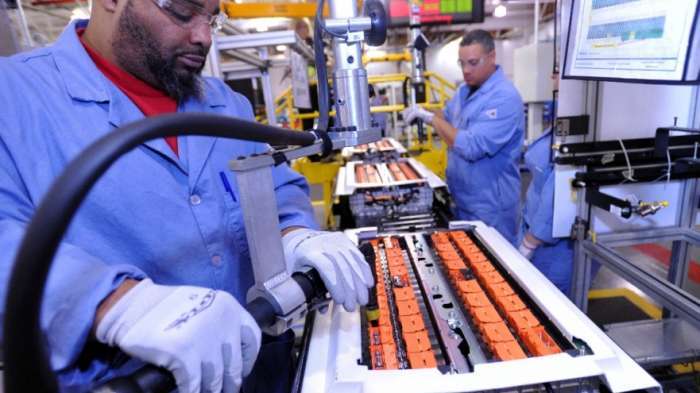
Peak Battery - Affordable EV Battery Supply Chain Shortages
With every automaker (pretending, hoping, claiming) to be moving strongly towards an “all-electric future,” the demand problem is not getting better, it is getting worse. With Tesla and Panasonic effectively having cornered the market on these batteries, affordable models like the Volt, Bolt, Prius Prime, Honda Clarity, Kia Niro, and Hyundai Kona Electric cannot be built in volume because there is no way to make the global battery supply chain work.
So how does Tesla do it? I learned the answer to this question in 1990 while I worked as an undergraduate on electric vehicle battery cooling as a senior student. My professor at the time told our team, “Pick any two; affordability, performance, or range, you cannot have all three with EVs.” Tesla picked performance and range. Tesla cannot produce an affordable electric vehicle. Rather, it cannot do it and not lose huge sums of investor money. Even with thousands of dollars of consumer-facing tax rebates and state incentives, and with back-end industry-mandated ZEV credit funding totaling billions in revenue, Tesla still finds a way to reliably lose money on luxury-priced EVs equipped with almost no luxury features to speak of. In fact, Tesla owners in online forums now take offense if one refers to a Model 3, priced into the $70Ks as a “luxury car.” Despite shaving costs on seats, interiors, and features, and with no conventional dealer network to pay, Tesla still loses money on expensive electric cars. And remember, Tesla is a sixteen-year-old car company now selling its third generation of electric vehicles.
Related Story: Tesla Struggles To Get Enough Batteries (The Verge)
Peak Battery - Automakers Begin to Admit the Reality
There have long been reports and warnings about the difficulty automakers have had with battery production. Including recent battery warnings from Tesla. Yet, automakers were afraid to admit the real problem openly. Why? For many years it was not politically correct to do so. Stare down the California Air Resources Board, EPA, and the green-vehicle congressional caucus at one’s peril. Better to play along, pen press releases claiming the great EVs are just “five years away,” and hope that a battery miracle happens. So far it has not. Instead, we have had slow generational improvements in battery density and cost. Like almost every product evolution. With the one exception that availability is not improving.
Related Story: In Japan, China and U.S., Scientists Work Feverishly For a Breakthrough on Powerful Batteries For EVs (Japan Times)
What seems to have changed lately is that the rank and file employees at major automakers are starting to loosen up a bit. When a recent automaker was asked if its plug-in hybrid model’s sales were production or demand limited, the automaker actually answered! The automaker replied, “Production.” While chatting informally at a recent media event about EVs, an employee at a top automaker was asked if the exciting new EV line would sell well, the quick answer was, “It can’t, because we can’t get the batteries. Nobody can.” We’ll skip the names. Being on the wrong side of the EV conventional wisdom is bad for business.
Related Story: Audi's First Electric Car Delayed Due To Battery Issues (The Brussels Times)
Peak Battery And the Toyota Prius
Toyota has never toed the line on electric vehicles. Because of this, Toyota takes a daily beating from the electric vehicle advocacy press. Since Toyota has dared to explore hydrogen fuel cell electric vehicles, and since it still produces popular well-selling hybrids, it is vilified by writers who serve the battery-electric fan community.
Related Story: Toyota Has a Curious Justification for Not Selling Any Fully-Electric Vehicles -Yet (Car and Driver)
Oddly, Toyota still manages to have the top-selling affordable electric vehicle in America, the Prius Prime PHEV, and sells more green vehicles than any other automaker - As it always has. The EV advocacy community is fickle. Saving fuel and reducing pollution are no longer the primary objectives. Toyota has long made clear that it does not see a viable way to produce affordable electric vehicles in volume. That Toyota has so far been proven correct only makes things worse for the company among the EV fan base.
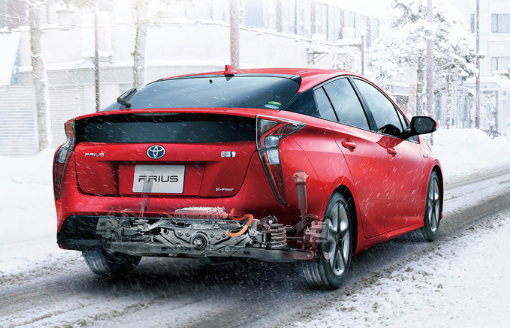
Just one of Toyota’s many new green vehicle introductions is an all-wheel drive version of the iconic Prius hybrid. Like vehicles with a plug, the Prius hybrid uses a battery and can propel itself short distances on battery power alone. Toyota had adopted lithium-ion batteries for the Prius in its current generation, moving away from nickel-based batteries. Lithium batteries have many advantages. However, there are areas of battery selection where lithium is at a clear disadvantage. One is poor cold-weather performance. This past year, multiple respected outlets including Consumer Reports tested BEVs in the cold and revealed that lithium batteries have about a 40% range drop. It was also proven that BEVs take longer to recharge when temperatures are near the minimums we find in America. Since Toyota’s Prius AWD is targeted specifically at colder areas, Toyota says it opted to use nickel-based batteries in its Prius AWD trim for performance reasons. We believe Toyota, but the fact that getting lithium-ion batteries is now becoming a major problem for automakers must have factored into that decision.
Peak Battery and the Tesla Effect
Ironically, Tesla’s success in sales/production of the Model 3 may also have influenced Toyota’s design decision. With Tesla now providing tens of thousands of lithium battery-equipped cars per month in a world starved of lithium batteries, designing one into an affordable car is a bad idea. The cost curve will turn ugly before it turns pretty.
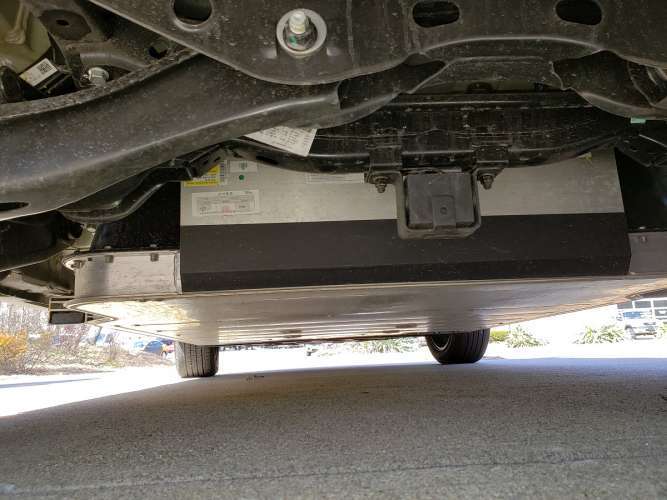
Peak Battery and The Future of Affordable EVs
Vehicles like the outstanding Kia Niro Electric prove that automakers can produce great electric vehicles designed for successful widespread adoption. Toyota, Nissan, Honda, and GM have all proven that they can produce electric vehicles that owners love. What no automaker has proven is that electric vehicles can be produced affordably and in volume - even with massive subsidies at both the front and back end of the business. The problem is the battery, and that problem has not been solved despite a decade of support from researchers, government, taxpayers, green vehicle shoppers, and frantic efforts by automakers and suppliers around the world. But don’t worry. The solution is just “five years away.”
Watch U.S. EV Sales By Brand from 2012-2019 and See How Prius Was Doing and Click To Subscribe to Torque News Youtube for Daily News on Toyota and Auto Industry.
John Goreham tweets at @johngoreham. Please send him news tips and follow us at @TorqueNewsAuto.
Set Torque News as Preferred Source on Google








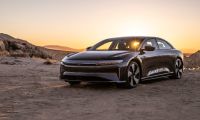
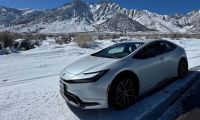
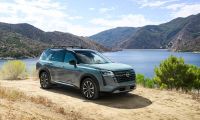
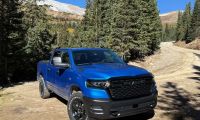
Comments
Wow, I had no idea about tHe
Permalink
Wow, I had no idea about tHe battery problem. I just never really considered an electric car. Seems like a hassle. Must be my age.
Haha. It is definitely not
Permalink
In reply to Wow, I had no idea about tHe by Jane G (not verified)
Haha. It is definitely not your age. Less than 1% of the vehicles on the road today in America are EVs and they have been on sale since about 2010. They are still not on the radar for most drivers/shoppers.
With anti-EV propaganda, that
Permalink
In reply to Haha. It is definitely not by John Goreham
With anti-EV propaganda, that includes a lot of selective reporting (a lie of omission is still a lie), like this, no wonder EVs have been slow to take off. EVs challenge two huge industries -- traditional carmakers and the petroleum industry --so it's not surprising there's a concentrated campaign of FUD being spread about them. EVs outperform gas cars on every important metric except price, and prices are coming down with volume, just like they do with any new technology. Talk to someone who has actually owned an EV for a while and you're going to get a lot more accurate and complete information than Mr. EVs-Have-Already-Failed here, who either is being paid to spread propaganda or is just unwilling to tell the whole truth. The future of cars deserves better than the biased garbage like this story.
Thanks for commenting Charlie
Permalink
In reply to With anti-EV propaganda, that by charlie_OH (not verified)
Thanks for commenting Charlie. Untruths by omission are indeed lies. You may want to look more closely at the many story links. The one from EV-Advocacy group Elektrek, for example, which reports on Tesla's warning that a shortage of battery materials is a real problem. Or the Inside EVs link backing up the fact that affordable EV sales are in decline or stagnating at very low volumes. The story's premise is also supported by links from publications around the world including Japan and Europe. Note also the last link, which is part of my recent reporting highlighting the strong sales of the Model 3. In 1989 I began studying EVs as an engineering student. After decades working for companies serving the high tech and auto industries I began writing full time and have covered EVs regularly longer than most EV-advocacy publications have existed. My regular tests of EVs appear here at TN, at the sites that serve car shoppers, and over 100 U.S. newspapers. My most recent EV test was a back to back comparison of the Tesla Model 3 SP+ to the Kia Niro Electric. If there is a writer telling more of the whole truth on this topic I've yet to meet her.
Hmm - yet battery production
Permalink
Hmm - yet battery production isn't much of a problem in..er.."communist" China.
Where there's a will and real pressure is applied carmakers can obviously deliver a vast choice of EVs without major battery supply problems.
Same applies to Tesla of course - but their EVs are still all too expensive for most people - in the "West' and in China.
Paul G
Paul, do you have a number or
Permalink
In reply to Hmm - yet battery production by Paul Govan (not verified)
Paul, do you have a number or a sense for how many American-car sized EV "vehicles" have been sold in China this calendar year? I honestly don't. Most of the EV stories I see related to China are either the Chevy Volt for that market or what we would categorize as neighborhood electric vehicles (NEVs). Small, local use EVs not "real cars." I'd like to know more about China's actual full-sized vehicle EV market. Insert the full HTML if you have a good source and I will paste it into my browser. Thx. You make a good point.
EV's are actually selling
Permalink
EV's are actually selling faster than anticipated. So the battery supply chain has not kept up. Big investments into supply chain coupled with reduced costs will change this equation drastically over the next 4-5 years. Using the US as a point for EV sales is not wise. Most manufacturers treat the US as a secondary EV market. And the ones that are sold are done often for compliance reasons. Gas is just to cheap in the US. And the balance is much stronger today in other markets. But again this will change.
Solid state batteries are
Permalink
Solid state batteries are just around the corner thing will explode for EV's when they come on line. They already exist in small quantities.
I hate the current Li-ion
Permalink
In reply to Solid state batteries are by David (not verified)
I hate the current Li-ion battery. I'm waiting for solid-state to arrive at a decent price. I'm also hoping Toyota becomes the king of solid-state. With 233 solid-state related patents and applications, my Toyota wish may come true within 5 years.
Of course there is a problem,
Permalink
Of course there is a problem, it is called under investment. The car companies don't want to fund graphite mines for graphite anodes, lithium mines for the electrolyte or Nickle mines for the cathode. When you don't invest in the supply chain you can't make cars. They thought the electric car was a fad until Tesla started eating their lunch. Why buy a Mercedes Benz, Audi, BMW, Ferrari when a Tesla roadster destroys them in acceleration, drivability and driverless technology.
You make a very interesting
Permalink
In reply to Of course there is a problem, by Dom (not verified)
You make a very interesting point. What would you estimate GM's investment and costs related to EVs has been thus far? Just as an example. And what do you think it should have been? Can you also help me with some links to stories outlining Tesla's mining holdings of the type you are referring to? I need to get caught up on Tesla's supply chain and it would be a big help. You can just paste the full address to the site in the comment.
Car companies should not need
Permalink
In reply to Of course there is a problem, by Dom (not verified)
Car companies should not need to directly fund the battery supply chain. High profits due to constrained supply should provide the incentive for mining companies to increase investment to expand production.
The reason there is no
Permalink
The reason there is no battery supply for traditional automakers is that they haven't made it a priority to get a decent supply.
Tesla and EV makers in China make it happen. VW may join them.
Traditional automakers do the bare minimum necessary to meet regulatory requirements.
Strong point. I don't
Permalink
In reply to The reason there is no by Jean-Pierre White (not verified)
Strong point. I don't disagree. I think it could be argued they do less than required. Evidence to support that would be the recent news that GM and FCA have paid billions to Tesla for ZEV credits (rather than build and sell EV cars).
Toyota may surprise us all
Permalink
Toyota may surprise us all with a solid-state battery sooner then expected. They're hinting that one is on the verge of production. Regardless, they have stepped up their EV program, thanks to a battery deal with Panasonic and an EV platform partnership with Subaru.
Until solid-state is available at an acceptable price, I'll stick with either a conventional vehicle or a hybrid.
So now that we've become
Permalink
So now that we've become energy independent on oil and no longer have to kiss up to Arab coumtries, we're going to make ourselves dependent on our good friend China for lithium for our batteries. Right? Smart move.
It may be better to have all
Permalink
In reply to So now that we've become by Al (not verified)
It may be better to have all the pollution from lithium mining take place in China instead of here. One proposed mining claim undergoing review in CA will put tons of dust in the air every week from a region which already creates air pollution felt by mid-western states if approved.
Maybe it'd be better to let China have more respiratory problems from mining. Just my two cents.
Seriously we Australian's
Permalink
In reply to So now that we've become by Al (not verified)
Seriously we Australian's have been heavily investing in rare earths, graphite and lithium over the last 5 years to break the Chinese grip on these critical minerals. Goldman Sachs, UBS, Morgan Stanley meanwhile has been shorting these companies, driving them bust and allowing the Chinese to buy up Australian assets for cheap. Now you complain the Chinese own everything, stop your investment banks working us over and you will have all the minerals you need. Just last week Goldman Sachs is forcing the only major graphite mine out of the ASX 200 with enormous amounts of shorts.
Dom, your comment from
Permalink
In reply to Seriously we Australian's by Dom (not verified)
Dom, your comment from Australia is much appreciated. I didn't realize the role your country and continent are playing until I read closely the Elektrek story link I inserted. Tesla thinks Australia has an important role in EV batteries and that it is growing more important over time. I don't know much about the investment bank angle, but it is something I will start to watch more closely based on your comment. Thanks again.
The entire "argument" here is
Permalink
The entire "argument" here is a misdirection from the fact that when government puts its thumb on the scale to promote pc goods it poisons the well. The govt has no legitimate business trying to manipulate markets. If green vehicles are ever going to emerge, it'll be when it's a mature technology. That WON'T happen till the govt ceases meddling.
Article covers a lot of
Permalink
Article covers a lot of ground and so do comments. Our family has driven EVs since 2012 and we prefer over ICE. Two quick points: 1. ICE engines have been engineered and produced for over 100 years. Pure electric EVs around 15...Look at Model 3 capabilities now and consider what is possible in 85 years of development. 2. Just because we are currently self reliant or close on fossil fuels doesn't mean we should stop our quest for better energy solutions. People understand the basic human drive for improving but seem to want stay with fossil fuels which are better than whale oil, wood and (early fossil fuel) coal. Economics will ultimately drive the increased percentage of EVs over time. We are in early stages of a major paradigm shift. Thanks.
One item of correction:
Permalink
One item of correction: Electric vehicles were among the leading sellers before the turn of the 20th century. The Baker Electric was a two-door, formal cab-style electric that sold in decent numbers until 1915 when ICE vehicles really took over the market. Perhaps it was WWI, I have never investigated that aspect, but I do know that after 1915 electrics practically vanished from the marketplace for about 60 years. There were occasional tries, but they usually failed, including several that were from New England. As to batteries, solid state batteries are still too expensive and no one knows when the economics of that particular type of battery will come down. Lithiums or LIthium-ions are also too expensive, though the production curve is coming down. The problem with Lithium-style batteries is that there is finite amount of Lithium produced every year and this country does not control that particular resource. I have always liked the hydrogen-fuel-cell-style battery that appeared from M-B in the 1970s. The key issue with them is storage and each medium they tried required added heat which cut expected mileage. To get back to the first point, though, electics were competitive for the first 30 years of the automotive revolution 1885-1915, and they did sell in appreciable numbers. The only problem was they were lead-acids with very limited range, though most folks back then didn't drive that far as the roads were positively atrocious.
Technology is getting better
Permalink
Technology is getting better but that's what everyone is waiting for. I'll jump all over an EV if I can get a quick charge and 500 + miles on that charge.
But until that happens most of us are on the fence waiting. Heck solid state lithium ion batteries are the next gen battery. When that happens the solar industry will also benefit because now you can tore a whole lotta of safe efficient charge to power on non sunny days